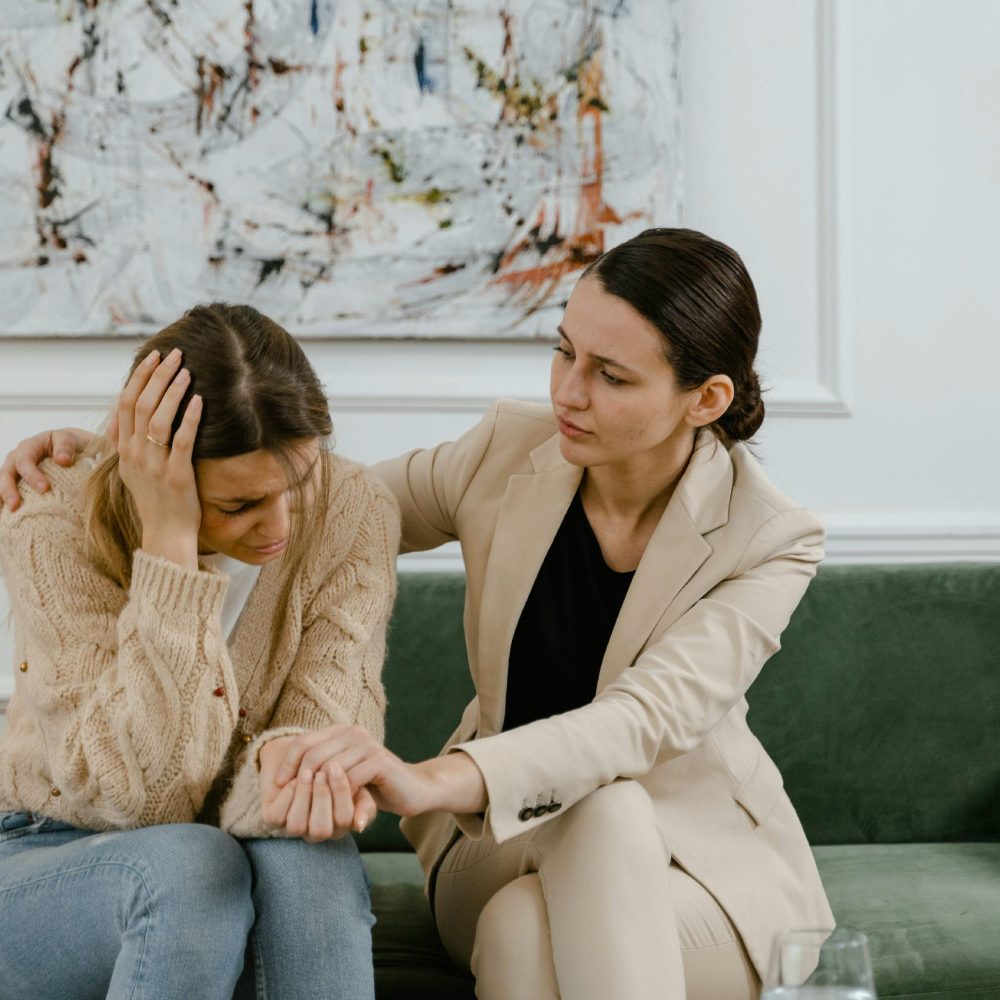Therapy For
Low Self-Esteem
Self-esteem plays a crucial role in shaping how individuals perceive themselves and their worth. Low self-esteem is a persistent issue that affects millions of people, influencing their personal relationships, professional life, and overall well-being, likely effecting all individuals during at least one point throughout their lifetime. It’s estimated that roughly 85% of people worldwide (adults and adolescents) have low self-esteem, according to a study featured in Psychology Today.
It can be particularly difficult to manage as a young person who’s developing their sense of self and placement in the world. Understanding what low self-esteem is, how it manifests, and how to manage it is essential for fostering a healthier self-image and improving mental health, while preventing symptoms from manifesting as a result of low self-esteem. As our society focuses more on mental health, we are realizing how important it is to help shape self-esteem early in life to build a better, more self-supportive foundation that adapts better to periods of doubt and low self-esteem.
What Is
Low Self-Esteem?

Low self-esteem refers to a negative perception of oneself, often characterized by feelings of unworthiness, inadequacy, and self-doubt. Individuals with low self-esteem struggle to see their strengths and frequently compare themselves unfavorably to others. This mindset can impact decision-making, relationships, and overall happiness.
Self-esteem is shaped by various factors, including childhood experiences, societal expectations, and personal achievements. While occasional self-doubt is normal, chronic low self-esteem can lead to mental health challenges, including depression and anxiety.
Today, low self-esteem has become even more common and persistent with the rise and use of social media. Comparison culture is at an all-time high, and having access to billions of others across the world has led people of all ages to put more pressure on themselves to achieve higher goals as it relates to work, physical appearance, and overall achievements – or at least the perception of them.


How Low Self-Esteem
Manifests
Low self-esteem can present itself in different ways, affecting thoughts, emotions, and behaviors. Recognizing these symptoms early can help individuals take proactive steps to improve their self-esteem and overall mental well-being. Some common signs of low self-esteem include:
Psychological Symptoms:
- Persistent self-criticism and negative self-talk
- Difficulty accepting compliments
- Fear of failure and rejection
- Feelings of guilt, shame, and worthlessness
Physical Symptoms:
- Chronic fatigue due to stress and anxiety
- Sleep disturbances (insomnia or excessive sleeping)
- Headaches and muscle tension
- Digestive problems caused by stress
Behavioral Symptoms:
- Avoidance of social interactions
- Reluctance to take on new challenges or responsibilities
- Over-apologizing and people-pleasing behaviors
- Procrastination and self-sabotage
- Disordered Eating
- Lying or manipulation
Clinical Therapies For
Low Self-Esteem

When low self-esteem significantly impacts daily life, professional intervention may be necessary. Some effective therapies for improving self-esteem include:

Cognitive Behavioral Therapy (CBT)
CBT helps individuals recognize and challenge negative thought patterns that contribute to low self-esteem. By restructuring these thoughts, individuals can develop a healthier self-image.
Acceptance and Commitment Therapy (ACT)
ACT encourages individuals to accept their thoughts and feelings without judgment while focusing on personal values and meaningful actions.
Dialectical Behavior Therapy (DBT)
DBT combines cognitive and mindfulness strategies to help individuals regulate emotions, improve self-worth, and build stronger relationships.
Group Therapy
Participating in group therapy sessions provides a supportive environment where individuals can share experiences and learn from others facing similar struggles. The goal is to “identify” without “comparing,” helping to normalize feelings of self-criticism and shared experiences.
Medication
In some cases, medications such as antidepressants may be prescribed to help manage underlying mental health conditions that contribute to low self-esteem. However, medication should always be used under professional supervision and is used only in combination with continued therapy.

Other Ways To Manage
Low Self-Esteem

Improving self-esteem requires intentional effort and self-compassion. Here are some effective ways to build a more positive self-image in-between therapy sessions, or when acute symptoms of self-doubt arise:
Challenge Negative Thoughts:
- Identify and replace self-critical thoughts with positive affirmations
- Practice self-compassion and remind yourself of personal strengths
- Keep a journal to track achievements and positive experiences
Develop Healthy Habits:
- Exercise regularly to boost mood and self-confidence
- Maintain a balanced diet to support overall well-being
- Get adequate sleep to improve mental clarity and emotional resilience
Set Realistic Goals:
- Break tasks into small, achievable steps to build confidence
- Focus on progress rather than perfection
- Celebrate personal accomplishments, no matter how small
Surround Yourself with Positivity:
- Build relationships with supportive and uplifting individuals
- Reduce exposure to toxic people who bring negativity
- Engage in activities that bring joy and fulfillment
Seek Professional Help:
- Talk to a therapist or counselor for guidance and support
- Join support groups to connect with others facing similar challenges
- Practice mindfulness techniques such as meditation to manage stress


frequently asked questions about
Low Self-Esteem Therapy
How Can I Tell If I Have Low Self-Esteem?
If you constantly doubt yourself, struggle with self-worth, and have a negative self-image, you may have low self-esteem. Other signs include difficulty accepting compliments, avoiding challenges, and excessive self-criticism.
Can Low Self-Esteem be treated?
Yes, low self-esteem can be improved with self-awareness, practice, and professional support from a trained therapy team like Behaved Brain. Implementing positive affirmations, therapy, and self-care routines can help boost self-esteem over time.
How Long Does It Take to Improve Low Self-Esteem?
There is no set timeline for improving self-esteem. It varies from person to person, depending on the severity of negative beliefs and the effort put into change. With consistent practice and support, individuals can gradually build a healthier self-image.

Start Your Therapy Journey

Behaved Brain Wellness Center is currently accepting new in-person and virtual clients. If you’d like to call to schedule a session at either our Ho-Ho-Kus, NJ or Midland Park, NJ location, click here!







